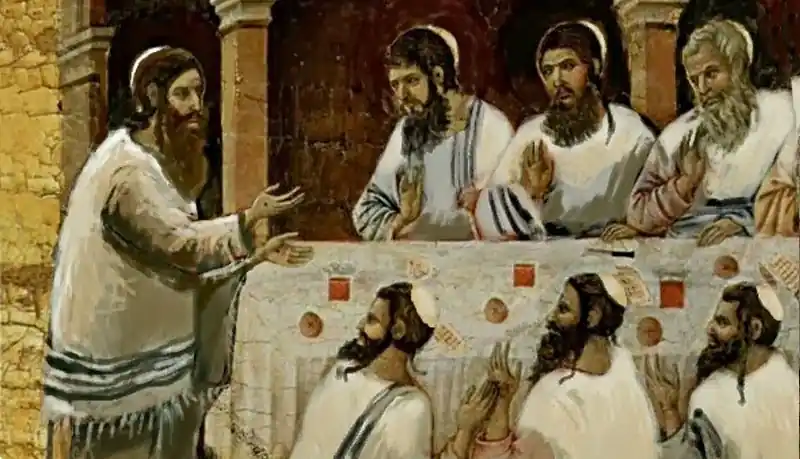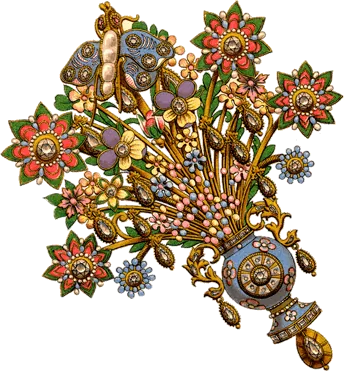Rabbi Yeshua calls each of us individually to a life of discipleship to him. But what is a disciple? What does it mean to be a disciple?
Our image of a disciple may be of a bearded man in a robe and sandals. Or it may simply be an image of one of the Twelve that followed Yeshua. We tend to think of discipleship as a New Testament, Gospel phenomenon, perhaps something Yeshua introduced when he chose his 12 disciples. This is wrong.
Rabbi Yeshua calls each of us individually to a life of discipleship to him. But what is a disciple? What does it mean to be a disciple?
Discipleship in Judaism
Long before the days of the Master, discipleship was already a well-established institution within Jewish culture. All the great sages, the rabbis, the sages among the Pharisees and the teachers of the Torah had disciples.
The Hebrew word for disciple is talmid. Talmid means student. The plural is talmidim: students. We translate talmidim as disciples. A talmid was a student of one of the sages. A talmid's job was to learn everything that his Master had to teach.
The disciples of First Century Judaism learned everything from their teacher, and they learned to be just like their teacher. They learned the stories that the teacher told. They learned the lessons that their teacher taught. They learned to eat the foods that their teacher ate, the way their teacher ate them. They learned to keep the Sabbath the way their teacher kept Sabbath and to give charity the way their teacher gave charity. They learned to pray the way their teacher prayed and to fast the way their teacher fasted. They learned how to keep God's commands the way their teacher kept them. The disciples followed their teacher everywhere he went, and the teacher taught his disciples everything he could.
Then, after a disciple was fully trained, he would become a teacher and teach disciples of his own. A disciple's job was to become like his or her teacher. So it written for us in the Gospel:
"Every disciple fully trained will be like his teacher." (Luke 6:40).
So when the disciple is fully trained, he becomes the teacher, and raises up disciples of his own, who in turn, when fully trained become teachers and raise up disciples of their own.
The Three Charges to Disciples
The process of handing on teaching from generation to generation stretches back in time, a long continuous chain, all the way back to Mount Sinai. Through the teacher-disciple chain, the teaching of the Torah was passed on from generation to generation. The Mishna in Pirkei Avot begins with a description of how this transmission process carried the Torah from Moses to Ezra's generation.
"Moses received the Torah from Sinai and transmitted it to Joshua (his disciple) Joshua to the elders; the elders to the prophets, the prophets to the men of the Great Assembly. The Men of the Great Assembly said three things, 'Be deliberate in judgement, raise up many disciples, and make a fence for the Torah." (Avot 1:1, 2)
Ezra's generation, the Men of the Great Assembly, issued three charges to their disciples.
1. Be deliberate in judgment: The Men of the Great Assembly warned the disciples to be careful when judging. They warned them to weigh all the evidence. When asked a question regarding scripture, when making a legal ruling, when hearing court cases as elders or as judges sitting on a court of law or even when simply making a small decision on a point of law, be careful and be deliberate. Disciples are to take the Scriptures seriously and study them diligently.
2. Raise Up Many Disciples: The Men of the Great Assembly told the disciples to raise up many students. Disciples are to pass the teaching on to the next generation of students. If we do not, there will be no continuity of the faith. If disciples do not raise up disciples who in turn become teachers raising up disciples, the teaching is lost.
3. Make a Fence for the Torah: The Men of the Great Assembly told the disciples to protect the law. They were to protect the commandments by teaching their disciples to avoid even seemingly benign behaviors that might lead to sin. For example, the commandment not to look at a woman lustfully is a fence protecting the commandment not to commit adultery. If one does not look with lust, one will never come near committing adultery.
The Disciple -Teacher Relationship
The teacher-disciple relationship was a powerful bond. Disciples regarded their teachers higher than their own fathers. It was a relationship over and above any student-teacher relationship that exists in our culture.
It was expressed as a servant to master relationship. (See Matthew 10:24) Thus the disciples of the First Century referred to their teachers as Rabbi meaning "Revered One" or as Master.
It was expressed as a son to father relationship. In Rabbinic literature, the Torah sage is the Father and his disciples are called his family, hence terms like Beit Hillel "The House of Hillel." The collected words of the Torah Masters are called "Sayings of the Fathers." The sages say that your Teacher is to be accorded higher honor than your birth father, because your birth father brought you into this world, but your teacher brings you into the next world. (Bava Metsi'a 2:11)
The Four Jobs of a Disciple
In the first century, the disciples of the sages had four major tasks to perform.
1. To memorize their teacher's words. It was the job of a disciple to memorize his teacher's words. The oral transmission process was the only method practiced among the sages. The great rabbis and Torah scholars did not write scrolls or compose books for their students to read and study. Instead, they taught orally and their disciples studied by memorizing their words. Through constant repetition, disciples memorized their teacher's words verbatim and were able to repeat them to subsequent generations.
2. To learn their teacher's traditions and interpretations. It was a disciple's job to learn the tradition of how his teacher kept the commands of God and interpreted the Scriptures. Every detail about the teacher was important to the disciple. The disciple needed to learn how the teacher washed his hands, how he kept the Sabbath, how he fasted, how he prayed, how he gave charity, how he affixed a mezuzah, how he said the blessings over food, etc. Furthermore, the way the teacher interpreted passages of scriptures, the meanings he drew out, the midrashim he told, the parables and stories he used to elucidate with, the way he explained a verse or understood a concept, each of these was of utmost importance to the disciple. Details of this sort were not just trivia. To a disciple, these were like gems and pearls meant to be gathered and treasured.
3. To imitate their teacher's actions. It was the job of a disciple to be like his teacher. A disciple's highest calling was to be a reflection of his teacher. His goal was to one day be just like his Master. A disciple studied to learn to act and to speak and to respond the same way his Master would act and speak and respond. A disciple studied to do the things his Master did. The gospels express this concept with the words, "Every disciple, fully trained will be like his master." (Luke 6:40)
4. To raise up disciples. It was the job of a disciple, when finally trained, to raise up his own disciples. He was to create a new generation of students and to transmit to them the memorized words of his Master, the traditions and the interpretations of his Master, the actions and behaviors of his Master. The goal was to pass the teaching and the torch of discipleship from generation to generation. So each disciple became the teacher, the rabbi, the master, and the father to a new generation of disciples.
These functions describe the cultural context of the institution of discipleship in the gospels. When Yeshua called his disciples, these four tasks are the things they were called to do. This is how they understood their job.
He spent three years teaching them and training them. When he left them, he gave them this command, "Therefore go and make disciples of all nations, baptizing them in the name of the Father and of the Son and of the Holy Spirit, and teaching them to obey everything I have commanded you." (Matthew 18:19,20) The great commission is the normal job of a disciple, to raise up more disciples.
An Important Difference
But there is an important distinction that needs to be made when we speak of discipleship and the disciples of Yeshua. It is a distinction that Yeshua himself drew for his disciples. We find it in Matthew 23:8-10 where he says to his disciples:
"But you are not to be called 'Rabbi,' for you have only one Master and you are all brothers. And do not call anyone on earth 'father,' for you have one Father, and he is in heaven. Nor are you to be called 'teacher,' for you have one Teacher, the Messiah."
On the surface this would seem to contradict other parts of the NT in which we see that elders, fathers, teachers and leaders are ordained in the communities of faith. Are we to not have teachers or leaders?
The context in which he is speaking is the teacher-disciple relationship of the first century. We have already seen that this teacher to student relationship is likened to a master to servant and father to son relationship.
Yeshua says it is not to be like that for his disciples. He says that his disciples are not to be like other disciples in that regard. Other disciples, when they are trained go and raise disciples for themselves and then they become the teacher, the father, the rabbi, the master. Yeshua's disciples are instructed not to raise disciples for themselves. There was not to be a School of Peter, a House of Andrew, an Academy of James. There were not to be disciples of Beit Yochanon and disciples of Beit Nathaniael.
The disciples of Yeshua were never to take the role of master, because unlike the master's of the Pharisees or the men of the Great Assembly or sages like Hillel or Shammai, Yeshua is still alive. Followers of Yeshua are forbidden to make their own disciples because their job is to raise up more disciples for Yeshua. For we have one teacher! The Messiah.
Ultimately, it is not that we do not have teachers among us, or elders, fathers, rabbis or even leaders. Of course we do. But we must never let our elders, fathers, rabbis, leaders or teachers take the place of our Master. We must never be the disciples of men carrying on the traditions of men. Rather, we must be disciples of the Messiah. We must never raise up disciples for ourselves, for our own self-aggrandizement. Rather we must raise up more disciples for him!
This is the peculiar distinctive of the Disciples of Yeshua. Our Master is still alive.
Come and Follow Me
The call to discipleship is an invitation to you, even today. The job of a disciple today is no different than the job of a disciple in the First Century. We are called to follow Rabbi Yeshua. It is our job to memorize his words. It is our job to learn his traditions and interpretations of scripture. It is our job to imitate his actions. It is our job to raise up more disciples for him.
Rabbi Yeshua is calling you to follow him today. You can be his talmid, even today, just as Peter or John. The choice is yours. Come and join yourself to the company of the Talmidim of Beit Yeshua.


